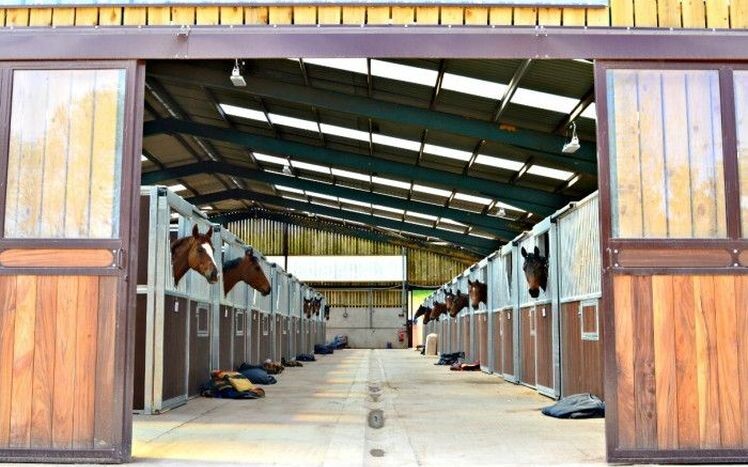
Horses are an expanding element of the rural economy and often provide a source of diversified income for farming businesses. However, they often present problems to applicants proposing development and to planning officers alike as they are not ‘agricultural’, so it's worth being prepared...
The planning definition of ‘agriculture’ dates back to the 1940s: only horses kept for ‘food, wool, skins, fur or farming the land’ are deemed ‘agricultural’. This not only covers buildings but also extends to the use of the land. While the use of buildings, structures and land for agricultural livestock may not require planning permission, for horses, planning permission will generally be required, including the grazing of paddocks. Existing agricultural buildings will need planning permission for change of use or conversion to stables, arenas and tack rooms. Other facilities such as car parking, horse walkers, turnout areas, ?oodlights and gallops will also require planning consent.
Many farms with horse facilities may have been operating without official planning consent for a number of years. If the use has been constant for at least ten years, up to and including the date of application, then a Certi?cate of Lawful Existing Use or Development could be submitted to prevent the Local Planning Authority from enforcing the equine use to be stopped. This Certificate would legalise the equestrian use or building.
Similarly to agricultural dwellings, planning permission for residential dwellings either for the applicant and/or their full-time staff is possible on-site if there is an ‘essential need’. Guidance is limited; the National Planning Policy Framework doesn’t make speci?c reference to equestrian uses. Therefore, a clear and structured business justification can really help an application.This doesn’t prevent domestic equine developments providing that proposals are of a scale and the design is in keeping with the application site and surrounding landscape character.
If you are a farmer or landowner contemplating any sort of horse enterprise on your land it is strongly advised that you discuss potential planning issues sooner rather than later.
Author: Angela Cantrill




